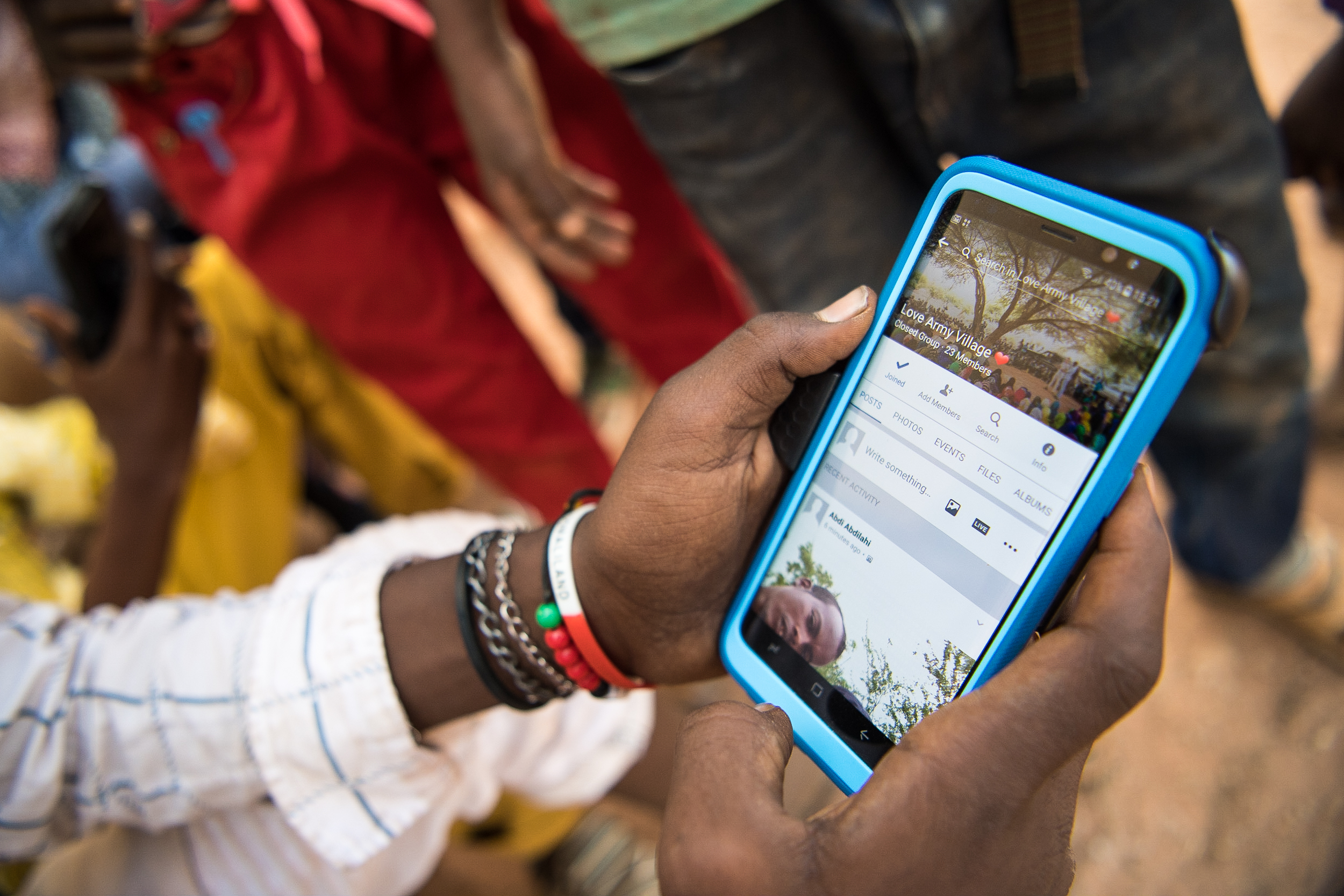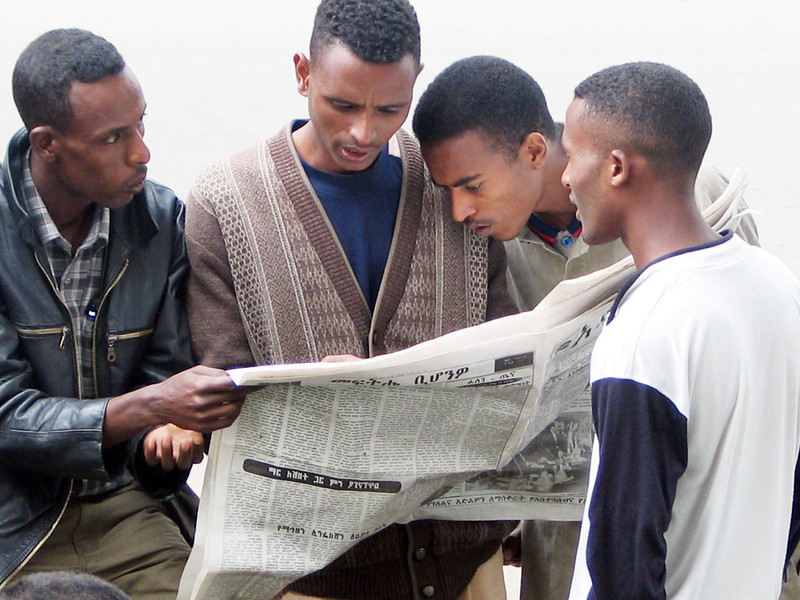We are excited to announce that Brink is now part of Africa Practice. Learn more
Often described as “born frees”, South Africa’s post-1994 youth population has grown up without experiencing the horrors of Apartheid and the struggles of their elders. However, as young South Africans continue to grapple with poverty and record levels of unemployment, an ailing economy, and high levels of crime and violence – many are asking what freedom means. Indeed, for this years’ first-time voters, the energy crisis (“load-shedding”) has been a phenomenon throughout their entire lives.
On the eve of the country’s previous general election on 8 May 2019, thousands of young people expressed their reasons for abstaining from voting using the hashtag #IWantToVoteBut on Twitter. Some cited disillusionment with the political system. Others mentioned barriers to participation, such as difficulty in registering to vote, lack of accessible polling stations, or the inconvenience of voting on a working day. Many expressed dissatisfaction with the available options, feeling that none of the candidates truly represented their interests or values. At the time, the Electoral Commission of South Africa (IEC) disclosed that approximately nine million eligible voters were unregistered, of which two thirds were youth. Consequently, the election witnessed the lowest voter turnout since 1994.
Across the continent, young people have the potential to shape electoral outcomes and demand policies that address their needs and aspirations. Yet, there is a crisis in young people’s civic and political engagement. While youth often acknowledge the importance of voting, many do not identify voting as the best way to bring about change, citing corruption and failed promises as grounds to shun electoral politics. Instead, the youth have adopted other forms of citizen activism, including mass protests, occupy movements and social media campaigns. Hence, dismissing low youth voter turnout as a result of apathy is a lazy misconception: reduced youth political engagement is often a reflection of systemic barriers, organisational obstacles, a lack of representation and disillusionment with traditional governance structures – all of which undermine trust in the system.
What does the data say?
Over recent years, there has been a consistent decline in youth engagement in electoral processes in South Africa. This is captured in IEC data, which captures declining registration rates among South African youth over the years 2005-2021, as shown below.

45 million
The number of young people aged between 20-29*, who are registered to vote, stands at 4.5 million – 40% of their age bracket population, based on 2022 census data, and 16% of all registered voters.
As reflected on the chart, the proportion of registered voters in the 18-19 age group declined significantly from 30% in 2005 to just 15% in 2021, indicating a substantial decrease in voting intent within this pivotal demographic. Similar declines were observed in the 20-24 and 25-34 age groups. Overall, registration rates among the 18-34 age group decreased from 69% in 2005 to 57% in 2021, suggesting a growing disillusionment with the electoral process among young people.
The IEC has been working to address these dynamics. The electoral commission added 1.2 million new voters to the voters’ roll after the final registration weekend in February 2024. This brought the total number of registered voters to 27 million, out of a potential pool of 42 million eligible voters. The number of young people aged between 20-29*, who are registered to vote, stands at 4.5 million – 40% of their age bracket population, based on 2022 census data, and 16% of all registered voters.
With the absolute number of registered persons aged 18-29 years falling from 5 million in 2013 to 4.3 million in 2022, this slight increase is a cause for optimism – echoed by IEC chief executive Sy Mamabolo, who described the shift as “an important reversal of the historic underrepresentation of young people”.
*The 20-29 age bracket was used, rather than South Africa’s official youth definition of 18-35, to have comparative data for both the census and voters roll and calculate a percentage.
What are the reasons for this trend?
The IEC’s Voter Participation Surveys provide greater insights into reduced youth participation, which it breaks down into the following dynamics:
- Disenchantment: The youth demographic, especially those aged 18-24, showed significant disinterest in politics, with over a quarter abstaining from voting in the last national election due to disillusionment with politics.

- Lack of public awareness about the minimum age for voter registration: One contributing factor to low youth registration rates may be the lack of knowledge around the minimum age for voter registration. Only 16% of registered voters knew that one can register to vote from the age of 16, while the majority (76%) believed registration was only possible at age 18.
- Poor voting experiences: Youth reported experiencing worse voting experiences than their older peers, suggesting a growing dissatisfaction with the electoral process and the IEC. This dissatisfaction was not observed in previous studies, indicating a shifting attitude among young voters towards electoral institutions and procedures.
What can be done?
Inclusive political participation, especially among younger generations, is critical for building stable and peaceful societies and ensuring policies reflect their needs. The question that remains is how do we reinvigorate the youth demographic?
Civil society organisations and the IEC have spearheaded campaigns to raise awareness among young voters about their democratic rights. Some of these initiatives, Futurelect – led by former leader of the opposition Democratic Alliance, Lindiwe Mazibuko and Dr Sithembile Mbete, a lecturer in the Department of Political Sciences at the University of Pretoria – recognise a crisis of confidence in democracy, aims to increase voter registration and participation through widespread mobilisation efforts. Another notable initiative is Yoh Vote, a Tinder-like matchmaking platform to entice young people to participate in the upcoming elections, through making information about what the parties stand for more accessible.
Although this is no quick fix, youth engagement in electoral politics would be bolstered by more inclusive electoral processes, the promotion of intergenerational leadership within government, conducting civic knowledge building campaigns, and involving young people in electoral observation as a means to increase youth engagement and build youth capabilities in the electoral process. It is important to understand the outdatedness of voting versus the convenience of this age, particularly where technology is concerned. The Electoral Commission’s online voter registration facility allows new voters to register and existing voters to update or amend their registration from the ease and convenience of their homes or elsewhere, was a positive step towards change. However this comes in a setting of poor internet penetration in various areas across the country. IEC communication campaigns should also effectively convey the option for early registration to the public, particularly targeting young people.
As pressures mount for social change and an accountable government in South Africa, now is the time to change the narrative around the youth’s lack of participation in the voting process. With the 2024 elections likely to be the most important elections in the history of democratic South Africa, young people have an opportunity to change the state of our country’s political landscape.
Proud to be BCorp. We are part of the global movement for an inclusive, equitable, and regenerative economic system. Learn more



